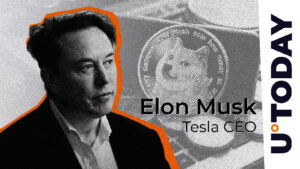Dogecoin Founder Billy Markus has shared an important message to advertisers on social media platforms like X. Known as a vocal activist on X, the Dogecoin founder uncovered key reasons why users block ads that pop up on their timelines.
Malware challenge
According to the Dogecoin founder, users are less likely to block ads if advertisers on websites stop making a habit of creating pops up with malware and other nonsense. His comments come amid growing concerns regarding scams on social media platforms like X.
dear all websites,
we are less likely to block your advertisements if your advertisements don’t pop up malware and other bogus crap
it’s your fault that people block ads
— Shibetoshi Nakamoto (@BillyM2k) May 20, 2024
Especially in the Web3 world, many people use social media as a major channel to connect with users, and scammers generally take advantage of this. On different occasions, crypto projects like Shiba Inu (SHIB) and Ripple have issued warnings to their communities to beware of bogus claims on X.
As Billy Markus noted, advertisers are to blame for users blocking their ads. Reacting to the post by the Dogecoin founder, users noted that it remains more helpful if projects, websites or advertisers just stick to telling the truth about their offerings.
Users will always need to protect themselves, especially in the crypto ecosystem, where one click on social media can lead to account draining.
Solving scams in crypto
As the digital currency ecosystem evolves, so too does the criminal activity grow more sophisticated. Just last week, U.Today reported that a Bitcoin whale lost a total of 1,155 BTC, marking one of the biggest heists of 2024.
While many such related scams have been recorded over the past few years, there has always been one strategy to combat this unending fraud. This hinges on raising community awareness.
Besides the regular sensitization from Shiba Inu and Ripple executives, Cardano Founder Charles Hoskinson also recently joined the trend, shining the spotlight on the role of AI Deepfakes overall. The bottom line is, too-good-to-be true offers in advertisements are a potential fund drainer to beware of.
Read the full article here









